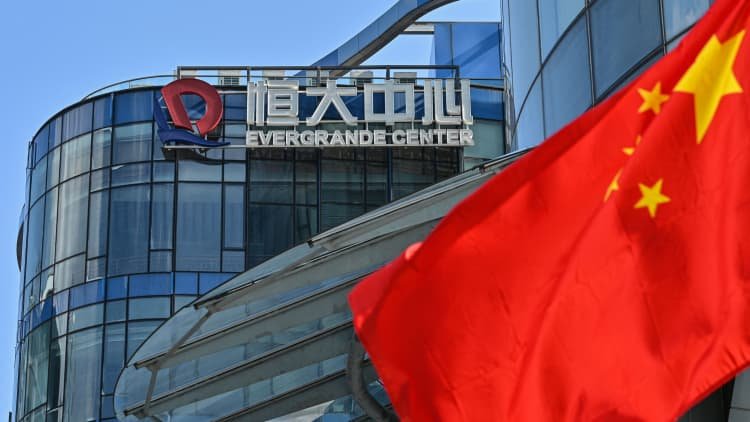China Evergrande Group is set to restart trading of its stocks on Monday, concluding a 17-month suspension. This comes after the most heavily indebted real estate developer in the world reported a loss of $4.5 billion in the first six months of the year.
Bloomberg reported that the firm, currently engaged in an extensive procedure to restructure its debt, disclosed a loss belonging to its shareholders amounting to 33 billion yuan ($4.5 billion) for the period spanning January 1 to June 30. This information was presented in a submission to the Hong Kong Stock Exchange on Sunday. This loss compounds the cumulative losses of over 582 billion yuan incurred over the past two years. These losses mark the company’s initial two complete annual financial downturns since it was listed in 2009.
The company has submitted a request to recommence trading in Hong Kong starting at 9 am on Monday. This move follows the company’s recent statement that its enhanced internal control system and procedures fulfil its responsibilities according to Hong Kong listing regulations.
As per the filing on Sunday, Evergrande’s cumulative net loss for the period totaled 39.3 billion yuan. The company also disclosed its combined liabilities, which reached 2.39 trillion yuan by the end of June. When excluding contract-based liabilities amounting to 604 billion yuan, the total stood at 1.78 trillion yuan for the first half, marking an increase from 1.72 trillion yuan in the previous year of 2022.
As of end-June, Evergrande had total assets of 1.74 trillion yuan, including total cash, cash equivalents and restricted cash of 13.4 billion yuan, the company said in its statement.
Bloomberg reported that the results give offshore bondholders more to digest as they consider the company’s debt restructuring proposal. The defaulted real estate giant has also asked to convene meetings for creditors to approve its offshore debt overhaul plan on Monday.
During April, the company stated that the proposal received support from investors holding 77% of its Class A bonds, whereas only 30% of Class C bondholders backed the plan.
Prism, a relatively small accounting firm that took on the role of Evergrande’s auditor in January following PricewaterhouseCoopers’ resignation, examined the financial results. However, Prism refrained from delivering a definitive assessment on the interim earnings report, citing various uncertainties.




